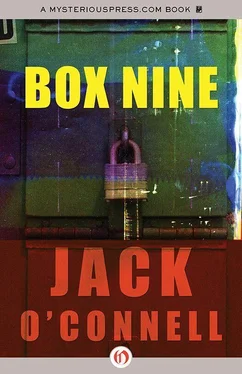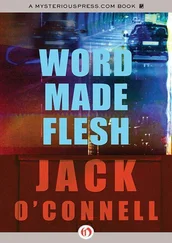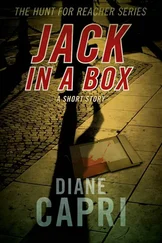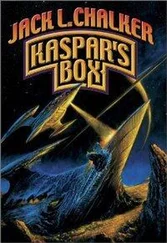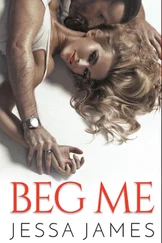But that’s not it at all. No way. I’m sitting here, in a cold, empty grave in St. James Cemetery, waiting for God knows what to happen to me. To take a life or two. To end my own. But what I’m thinking about, what I’m recalling, picturing, bringing up, so clearly, so unbelievably clear, in my head is our kitchen in the old house. Our museum-piece kitchen, an exhibition out of 1950s American Television Sitcoms: Linoleum greyand-red-checked floor, those four metal-legged chairs with the smooth, cool, dull-white Naugahyde backing, the metal-legged table with matching dull-white Formica top, the overstuffed, paisley-covered rocking chair that was Gramma’s, wasn’t it? And next to it, a little, black, wiry magazine holder stuffed with Life and The Saturday Evening Post. The silver-scrolled radiator in the corner that really pumped out the heat — remember Ike huddling next to it, mornings in the winter? That old white Norge refridge with the heavy pull-out handle. I built my first muscles opening and closing that monster. Mounted on all the walls are those old cream-colored real-wood cabinets with black handles, the inside shelves all lined with left-over wallpaper, that blue and white Colonial design, an early American man and woman sitting at a table having tea. Or I always thought it was tea. And, though I doubt I ever told you, Ma, I always thought the couple was George and Martha Washington.
I see the whole scene in the dim light of a late November evening, like this one. It’s five, five-thirty, and you’re waiting for Dad to get back from the corner market, you’d run out of milk, I think it was. You’d run out in the morning and the milkman wasn’t due for another day. Remember milkmen? Dad comes through the door, whistling, carrying a brown paper bag filled not only with a gallon of milk, glass bottle, but some Corncakes and Old Fashioneds for later on in the night. And as you take the unexpected treat out of the bag, you give him this mock, scolding smile. So endearing. That’s the only word that fits now. Endearing.
Ike’s at one end of the kitchen table, scrunched up in the chair, reading, lost as always, deep into, what was it — yeah, a Hardy Boys book , The Sinister Signpost. And I’m at the other end, supper plate pushed to the side, doing my math homework, printing numbers, with a pencil, on a white, lined piece of paper pulled from a black-marbled-cover spiral notebook, all those confetti-ish scraps running down the left-hand margin.
Dad sits in the old rocker, spreads The Spy open in his lap, the sports page, as you go about the last preparations for dinner. This is what I remember. This would be my last memory to fade at my death: You turn from the stove, casually, whipping potatoes, and ask Dad if he’s heard anything yet on the supervisor job that opened up last month down at the station. He doesn’t look up from the paper, but answers that, yes, they offered it to him, and he turned it down. I look up from my math homework, I instantly launch into a study of your face, Ma. You pause, then nod, your head bobbing for an extended few seconds, in time to the rhythm of the potato-whipping motion that your hand and arm are making. Dad, you add the last comment, one you’d probably said before: No better way for a man to lose his friends than to become their superior .
The words still ring, carried by your changeless voice, always, in my head.
Ma, you served dinner. Meat loaf. Dad, you tossed The Spy on top of the Norge and took a seat. Ike reluctantly, slowly, put aside Frank and Joe Hardy — I always wanted, still want, to ask him why the signpost was sinister. I moved my math text onto the radiator, felt its heat, and put it on the seat of the rocker. We dug into the meal. Warm and delicious as every one you ever served. The night went on.
All three of us, you two and me — Ike, I think, was probably unaware of the exchange — agreed it was the right decision. For Dad. For my father. I still think it was. But I learned something in that moment, seated there at the kitchen table. And I learned it in that way where it never leaves you, it becomes a permanent, central part of your essence. I learned a truth in a moment of epiphany.
And the truth was: There are people who want love. And there are people who want power.
And it occurs to me now, sitting in this awful open grave, sitting at the same level, in the same ground, where my parents, my flesh and blood, are buried, that the reason this would be the last memory to fade from my brain is that it was the moment when I changed. If you can stand the triteness of this thought: it was the line of demarcation between my innocence and my adulthood.
The standard way to mark that passage, that dividing line, is sexual. Maybe the first menstruation. Maybe the loss of virginity. These were secondary events for me. Because I’d already made a choice. For whatever reason, I was a changed girl. I wanted power. To the exclusion of all else?
You two tell me.
I am so cold right now. I have pushed my body, my nerves, to a point where some kind of collapse seems to be imminent. I don’t know what I feel anymore. And I’ve got neither the energy nor, really, the desire to find out, to find a system that might bring me back, full circle.
A few weeks back, Ike said to me, in his kitchen now, I don’t know what we were talking about, but he quotes some writer he likes. He says—“I believe in the politics of the lamb.” And the stupidity of that statement made me enraged, made me want to leap across the table at Ike, my brother, the last person I have left, and choke him. I can’t even talk to him anymore. Ike. Gentle, mutton-headed Ike.
Remember, Ma, a popular term of my childhood — Crisis of Faith. Capital letters. I don’t believe in anything anymore, except will. And I’m losing the hold on that. Mother. Father. Words. It’s all come to a head. I’m winding down. I’ve got maybe enough muscle and meanness and piss for one last seizure. And there are some fuckers about to be on the receiving end of that idea that took me, that entered me. Of that word: Power.
A sound cracks in her ear. A door being opened. Large, metal. Into a hollow-sounding interior. Obscuring echoes. Her fingers stop drumming. The deal makers have entered the Pachinko Brothers train car.
She hunches herself up a bit in the grave, brings a hand back to the earpiece, brings her teeth together, and listens:
ROURKE: Okay, listen up. The two parties in this transaction should be here any minute. I don’t want any screwups—
WILSON [ exasperated ]: Billy, please …
ROURKE: Let’s just run it down. The three of you did a walk-through, right? Okay, and Bromberg’s patrolling the new section and Jacobi’s got the old?
WILSON [ amused]: Patrolling. For Christ sake, Billy, talk normal.
ROURKE [ angry ]: Talk normal, I ought to smack your head, talk normal. This is not a goddamn mail route, you little bitch. This is not screwing around. You didn’t see the two gooks he brought to the bar, okay? Where did these fuckers come from? This was not in the plan. We’re his brokers. He was supposed to come alone. Get that goddamn flashlight out of my eyes.
[ More sounds of jostled, echoing metal. Feet climbing up into the train car ]
ROURKE [ mockingly polite ]: It’s the chauffeur. Donna, take the man’s lantern. That’s a beauty, that’s like a real railroad job there. Now, give me your hand, there you go. Where’s the boss?
MINGO: Give me the lantern.
ROURKE: I get it. Signal time. Like Paul Revere. Wasn’t that the guy? Paul Revere?
MINGO: Where’s your guy?
Читать дальше
